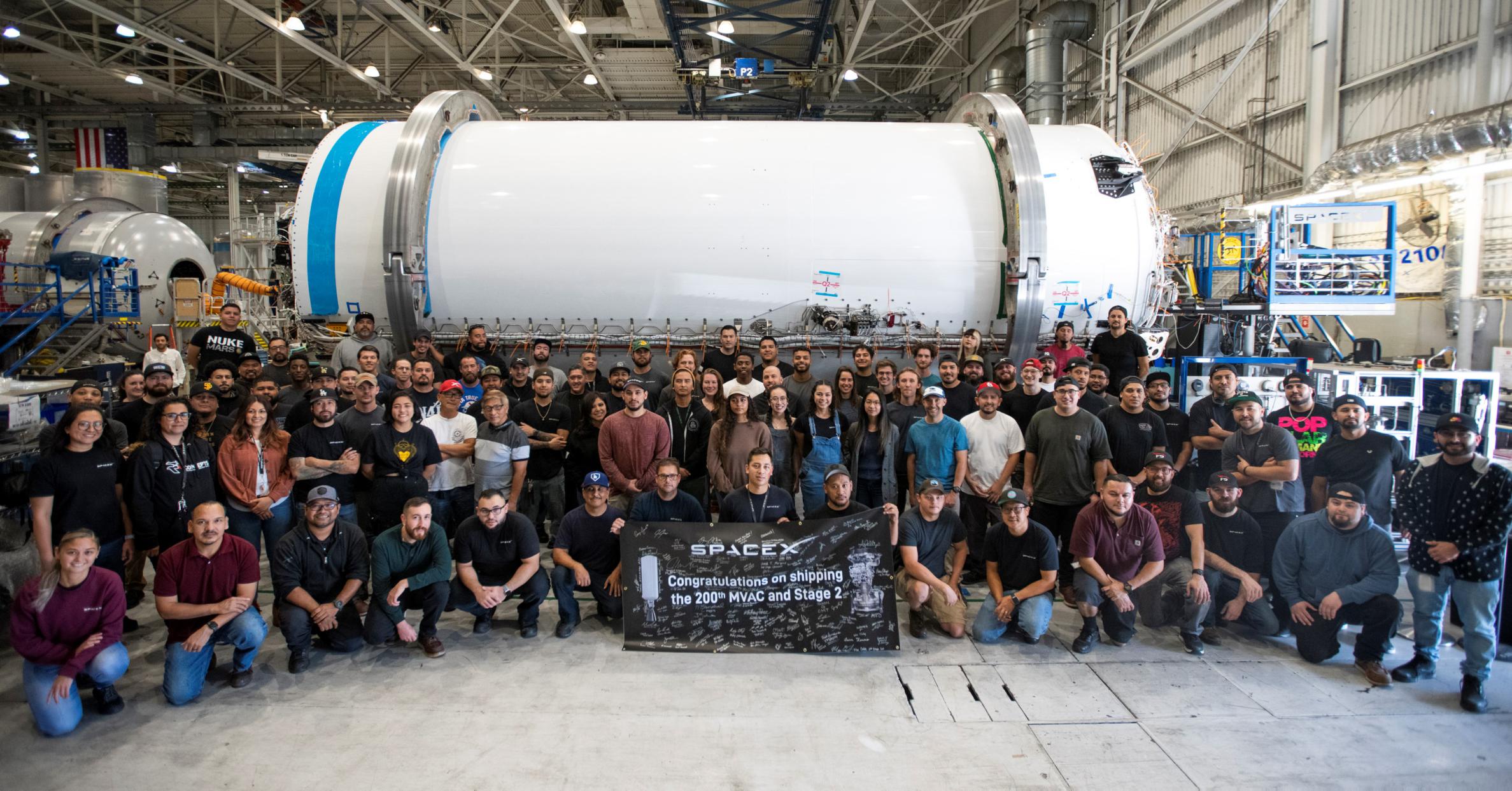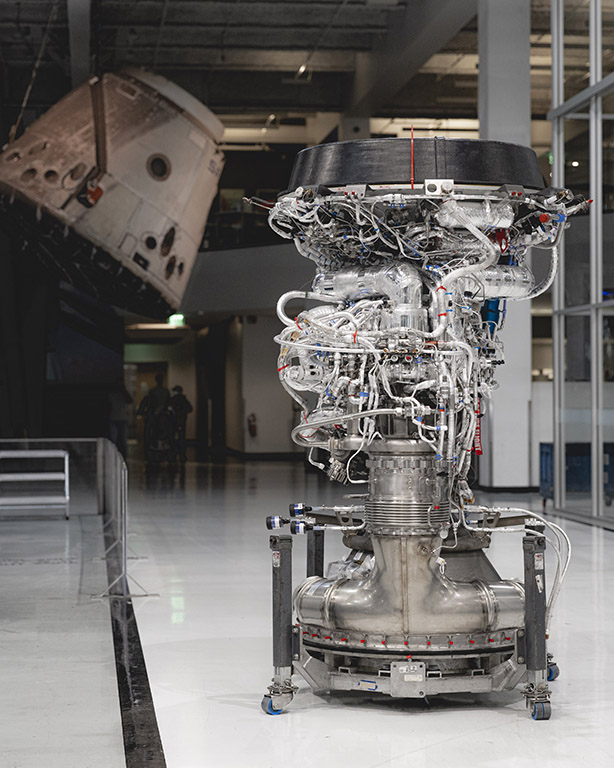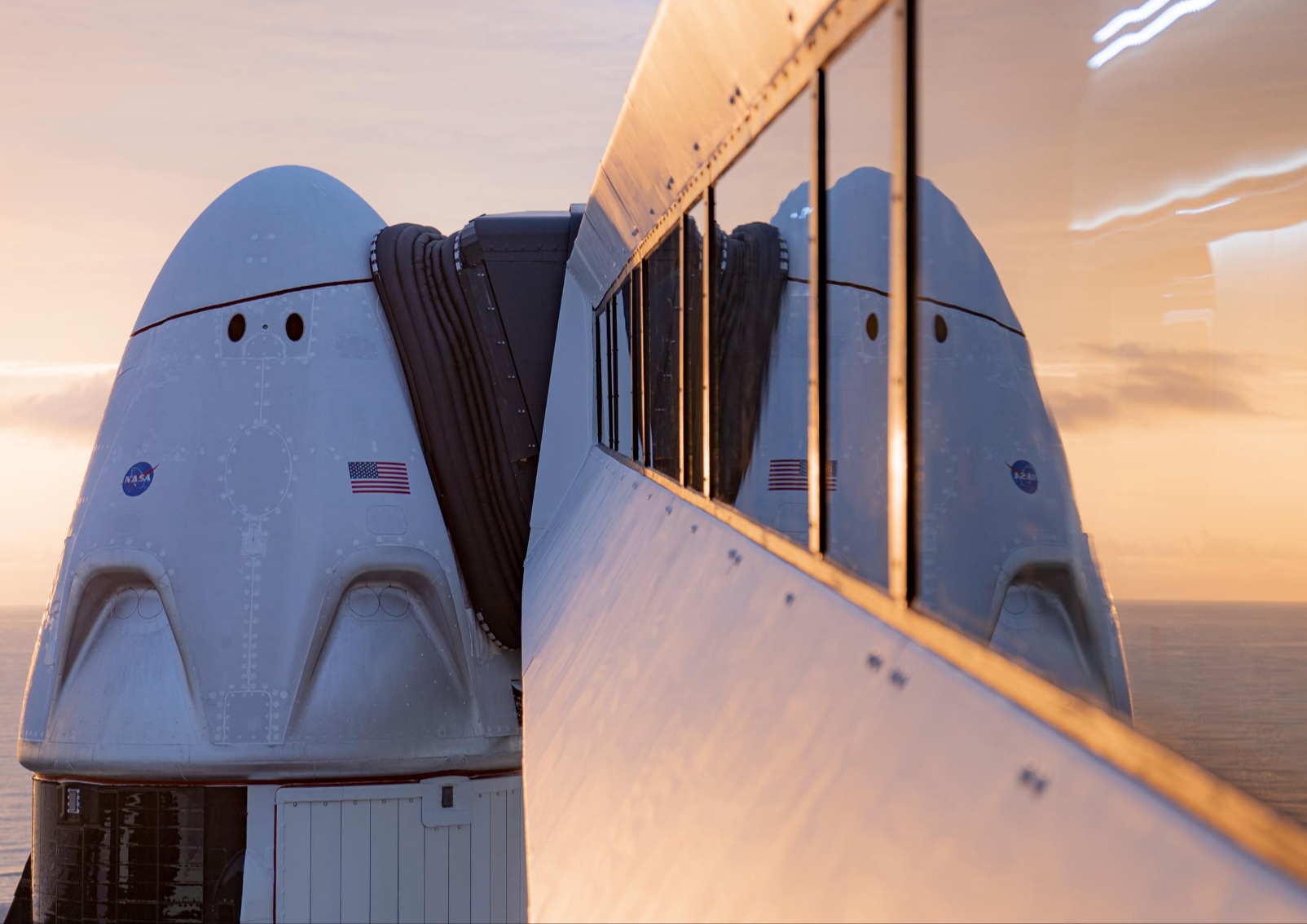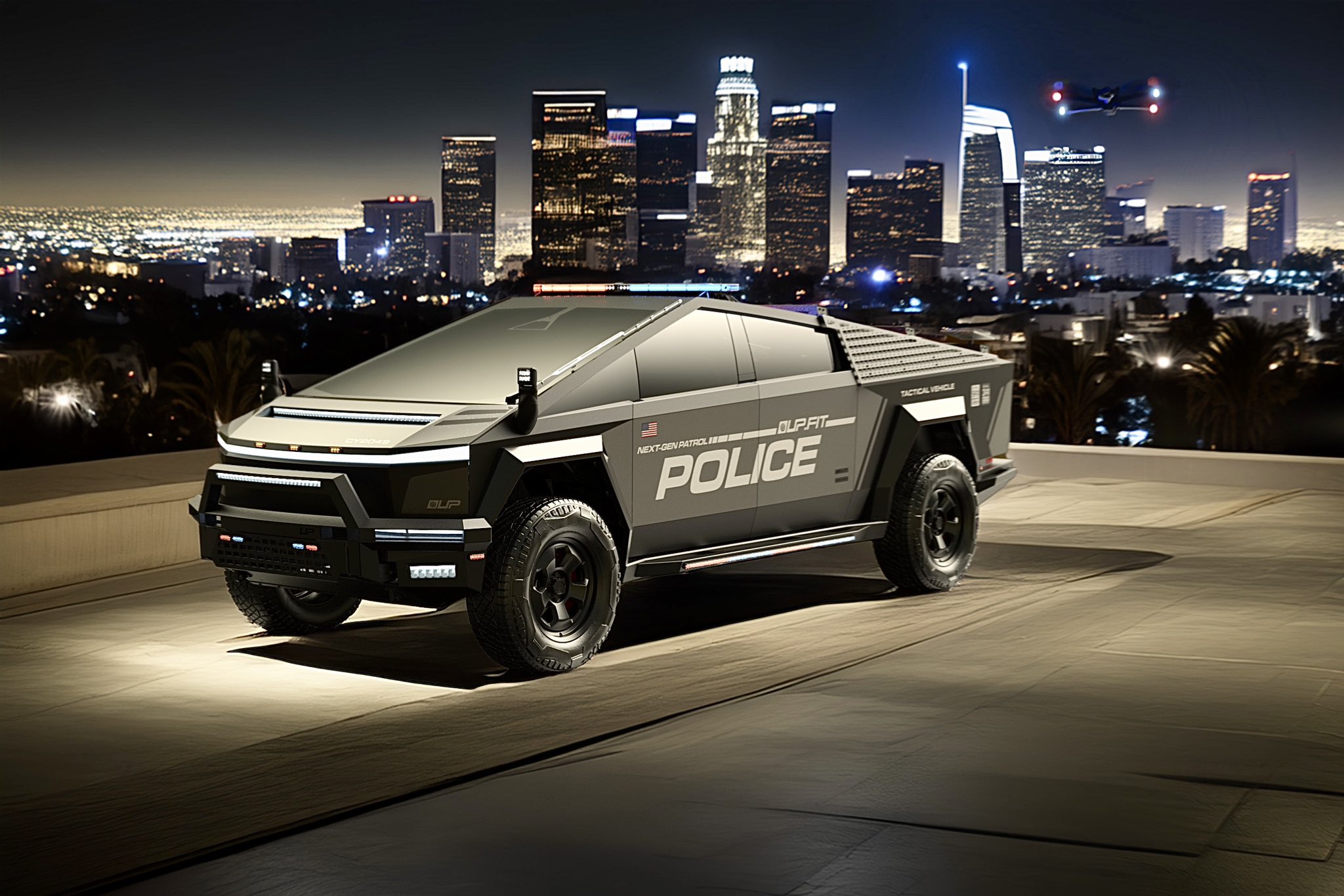

News
SpaceX ships 200th Falcon second stage, highlighting the flip-side of booster reuse
SpaceX has built and shipped its 200th Falcon second stage, highlighting the often underappreciated rocket’s record of achievement on the ground and in flight.
Approximately 13 years ago, in late 2009 or early 2010, SpaceX shipped the first flightworthy prototype of the first iteration of its Falcon 9 second stage. In June 2010, Falcon 9 lifted off on its inaugural test flight and, with the help of that second stage, successfully launched a boilerplate mockup of Dragon spacecraft into orbit. Since Falcon 9’s surprising inaugural success, SpaceX’s Falcon 9 and Falcon Heavy rockets have launched another 187 times for a total of 188 launches and 189 assembled rockets. Every one of those launches has required a new second stage, and all but one (Crew Dragon’s In-Flight Abort test) required a new Merlin Vacuum engine.
While SpaceX is most famous for the successful realization of rapidly reusable Falcon boosters, the company’s overall success is also inextricably linked to Falcon second stages, which are and always will be expended after every launch. For every spectacular Falcon booster landing or reuse record, a Falcon second stage either unceremoniously burns up in Earth’s atmosphere or finds itself stranded in orbit. As a result, even as SpaceX’s reusability has allowed it to launch more than ever before with a fleet of just 10-20 Falcon boosters, the company has had to expand the production of Falcon second stages extraordinary levels.
SpaceX just completed its 188th Falcon 9/Heavy launch, so the 200th flightworthy second stage and Merlin Vacuum (MVac) engine are probably scheduled to launch sometime in January 2023. In the last 365 days, SpaceX’s Falcon rockets have completed 59 successful orbital launches. Every launch has required a new second stage, so SpaceX, on average, has consistently built, shipped, and tested a new Falcon second stage every 6.2 days for more than a year.
Thanks to SpaceX’s record-breaking 2022 launch cadence, which has resulted in Falcon 9 launching more in one calendar year than any other rocket in history, the Falcon second stage has likely become the most-produced orbital rocket stage in decades. Barring surprises, SpaceX is on track to achieve CEO Elon Musk’s goal of 60 Falcon launches in 2022. But SpaceX isn’t done yet, and CEO Elon Musk says that the company is targeting “up to 100 launches” in 2023. After nearly doubling between early and late 2021, that will require Falcon second stage production to increase another ~67% year-over-year.
In its 12.5-year career, Falcon 9 has suffered three failures. In October 2012, on its third launch, one of Falcon 9’s nine Merlin 1C booster engines failed in flight. The main mission – a Dragon cargo mission to the International Space Station – was saved by the second stage, which autonomously compensated for the lost performance, but a secondary payload (Orbcomm’s first OG2 satellite prototype) was lost as a result. In June 2015, a faulty strut inside Falcon 9’s second stage caused a helium pressure vessel to break loose and rupture, destroying the rocket mid-flight. And in September 2016, during a prelaunch static fire test, a similar pressure vessel inside an upgraded Falcon 9’s second stage spontaneously sparked, causing an explosion that destroyed the rocket while it was still on the ground.
As a result, while problems with Falcon second stages have technically caused both of Falcon 9’s only catastrophic failures, it’s still true that a free-flying Falcon second stage has never failed in flight. The same is true for the second stage’s Merlin Vacuum engine: over hundreds of burns and more than 70,000 seconds of operation, MVac has never failed in flight.

After Falcon 9’s successful November 3rd, 2022 launch of the Eutelsat Hotbird 13G communications satellite, SpaceX’s Falcon rocket family has completed 160 launches without failure, arguably making it the most reliable rocket family in history. To achieve that feat with its partially-reusable Falcon 9 and Falcon Heavy rockets, SpaceX has had to master reusable and expendable orbital rockets to a degree that only a few other companies or space agencies in history can claim to have matched or exceeded, and that none have achieved simultaneously.
News
SpaceX’s Crew-11 mission targets July 31 launch amid tight ISS schedule
The flight will lift off from Launch Complex 39A at Kennedy Space Center in Florida.

NASA and SpaceX are targeting July 31 for the launch of Crew-11, the next crewed mission to the International Space Station (ISS). The flight will lift off from Launch Complex 39A at Kennedy Space Center in Florida, using the Crew Dragon Endeavour and a Falcon 9 booster.
Crew Dragon Endeavour returns
Crew-11 will be the sixth flight for Endeavour, making it SpaceX’s most experienced crew vehicle to date. According to SpaceX’s director of Dragon mission management, Sarah Walker, Endeavour has already carried 18 astronauts representing eight countries since its first mission with NASA’s Bob Behnken and Doug Hurley in 2020, as noted in an MSN report.
“This Dragon spacecraft has successfully flown 18 crew members representing eight countries to space already, starting with (NASA astronauts) Bob (Behnken) and Doug (Hurley) in 2020, when it returned human spaceflight capabilities to the United States for the first time since the shuttle retired in July of 2011,” Walker said.
For this mission, Endeavour will debut SpaceX’s upgraded drogue 3.1 parachutes, designed to further enhance reentry safety. The parachutes are part of SpaceX’s ongoing improvements to its human-rated spacecraft, and Crew-11 will serve as their first operational test.
The Falcon 9 booster supporting this launch is core B1094, which has launched in two previous Starlink missions, as well as the private Ax-4 mission on June 25, as noted in a Space.com report.
The four-members of Crew-11 are NASA astronauts Zena Cardman and Mike Fincke, as well as Japan’s Kimiya Yui and Russia’s Oleg Platonov.
Tight launch timing
Crew-11 is slated to arrive at the ISS just as NASA coordinates a sequence of missions, including the departure of Crew-10 and the arrival of SpaceX’s CRS-33 mission. NASA’s Bill Spetch emphasized the need for careful planning amid limited launch resources, noting the importance of maintaining station altitude and resupply cadence.
“Providing multiple methods for us to maintain the station altitude is critically important as we continue to operate and get the most use out of our limited launch resources that we do have. We’re really looking forward to demonstrating that capability with (CRS-33) showing up after we get through the Crew-11 and Crew-10 handover,” Spetch stated.
Lifestyle
EV fans urge Tesla to acquire Unplugged Performance for edge in fleet and security industry
Unplugged Performance has built a name for itself by producing performance upgrades for Tesla vehicles.

A growing number of Tesla enthusiasts and longtime community voices are calling on the electric vehicle maker to acquire Unplugged Performance, a California-based aftermarket company best known for tuning Tesla vehicles and developing specialized government fleet solutions under its UP.FIT division.
The idea was once considered a niche proposal among EV fans, but it is now gaining serious attention not just as a performance play but as a strategic move to deepen Tesla’s roots in the fleet and security industry.
A strategic fit
Unplugged Performance has built a name for itself by producing performance upgrades for Tesla vehicles, from track-optimized components to visual and aerodynamic upgrades. But in recent years, its UP.FIT division has pivoted toward a more functional future by outfitting Tesla vehicles like Model Ys for police, military, and government use.
That work has sparked growing calls for closer collaboration with Tesla, especially as the EV maker increasingly leans into autonomy, AI, and fleet services as core components of its next chapter.
“I posted this four years ago, but I think it’s more true now than ever,” wrote Whole Mars Catalog, a well-known Tesla investor and FSD Beta tester, on X. “Tesla should buy Unplugged. But not just as a Performance division. What they are doing with UP.FIT unlocks large government and commercial fleet purchases that can improve utilization.”
Tesla fans such as shareholder Sawyer Merritt echoed the sentiment, calling Unplugged a “great fit within Tesla.” adding, “They are literally located directly next to Tesla’s design studio in Hawthorne.”
Enabling the next wave
Supporters of the idea noted that integrating Unplugged into Tesla’s corporate structure could help accelerate the adoption of autonomous technologies in government sectors. With UP.FIT patrol cars already in use across some U.S. police departments, Tesla fans envisioned a future where self-driving Teslas could potentially revolutionize law enforcement, search-and-rescue, and public service logistics.
“Just imagine how autonomous patrol cars could transform policing and bring us into a safer future,” the veteran FSD tester wrote.
The benefits could also extend to Tesla’s existing consumer base. “They also have some incredible products in the works that I think will appeal to many ordinary Tesla drivers — not just those looking for performance or mods. Stuff that’s so good it should have come straight from the design studio next door,” Whole Mars Catalog noted.
Unplugged Performance, founded in 2013, shares not just a product vision with Tesla, but also geography. Its Hawthorne headquarters sits directly adjacent to Tesla’s design studio, and the two companies have maintained a close working relationship over the years. The aftermarket firm has long positioned itself as a “mission-aligned” partner to Tesla.
In response to the recent calls for acquisition, Unplugged Performance acknowledged the support from the community. “Our very existence is to support the Tesla mission with @UpfitTesla and @UnpluggedTesla,” Unplugged CEO Ben Schaffer posted on X. “We love working with Tesla and are grateful for the community’s support since 2013!”
News
Tesla debuts hands-free Grok AI with update 2025.26: What you need to know
All new Tesla vehicles delivered on or after July 12, 2025, will include Grok AI out of the box

Tesla has begun rolling out Grok, an in-car conversational AI assistant developed by xAI, to eligible vehicles starting July 12. The feature marks the most direct integration yet between Elon Musk’s artificial intelligence startup and Tesla’s consumer product lineup, offering drivers hands-free access to a chat-style companion while on the road.
Grok comes pre-installed on new vehicles
According to Tesla’s FAQ page for the feature, all new vehicles delivered on or after July 12, 2025, will include Grok AI out of the box. Owners of older vehicles may gain access through an over-the-air update, provided their vehicle meets a few hardware and software requirements.
Specifically, Grok is currently only supported on Tesla models equipped with an AMD infotainment processor and running vehicle software version 2025.26 and higher. Compatible models include the Model S, Model 3, Model X, Model Y, and Cybertruck. A Premium Connectivity subscription or active Wi-Fi connection is also required.
Tesla notes that additional vehicle compatibility may arrive in future software updates.
Grok’s features and limitations for now
Drivers can engage with Grok using the App Launcher or by pressing and holding the voice command button on the steering wheel. Grok is designed to answer questions and hold conversations using natural language, offering responses tailored to its chosen personality—ranging from “Storyteller” to the more eccentric “Unhinged.”
For fun, Tesla posted a demonstration of Grok likely running on “Unhinged” talking about what it would do to Optimus when they are on a date, much to the shock of the humanoid robot’s official social media account.
It should be noted, however, that Grok cannot currently issue commands to the vehicle itself, at least for now. Traditional voice commands for tasks like climate control, navigation, or media remain separate from Grok as of writing.
The feature is being released in Beta and does not require a Grok account or xAI subscription to activate, although that policy may change over time.
Grok privacy and in-car experience
Tesla emphasizes that interactions with Grok are securely processed by xAI and not linked to a user’s Tesla account or vehicle. Conversations remain anonymous unless a user signs into Grok separately to sync their history across devices.
Tesla has also begun promoting Grok directly on its official vehicle webpages, showcasing the feature as part of its in-car experience, further highlighting the company’s increasing focus on AI and infotainment features on its all-electric vehicles.
-

 Elon Musk2 weeks ago
Elon Musk2 weeks agoTesla investors will be shocked by Jim Cramer’s latest assessment
-

 Elon Musk2 days ago
Elon Musk2 days agoxAI launches Grok 4 with new $300/month SuperGrok Heavy subscription
-

 Elon Musk5 days ago
Elon Musk5 days agoElon Musk confirms Grok 4 launch on July 9 with livestream event
-

 News1 week ago
News1 week agoTesla Model 3 ranks as the safest new car in Europe for 2025, per Euro NCAP tests
-

 Elon Musk1 week ago
Elon Musk1 week agoxAI’s Memphis data center receives air permit despite community criticism
-

 News2 weeks ago
News2 weeks agoXiaomi CEO congratulates Tesla on first FSD delivery: “We have to continue learning!”
-

 Elon Musk2 weeks ago
Elon Musk2 weeks agoTesla scrambles after Musk sidekick exit, CEO takes over sales
-

 News2 weeks ago
News2 weeks agoTesla sees explosive sales growth in UK, Spain, and Netherlands in June
















